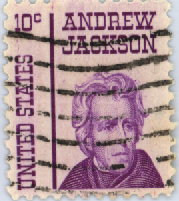Treaty Of Ghent Ends War
The United States suffered from internal divisions of the gravest kind. While the south and west favored war, New York and New England in general opposed it. The declaration of war had been made with army preparations still far from complete. There were fewer than 7,000 regular soldiers, distributed in widely scattered posts along the coast, near the Canadian border, and in the remote interior. These were to be supported by the undrilled, undisciplined militia of the several states.
Hostilities began with a triple movement for the invasion of Canada, which, if properly timed and executed, would have brought united action against Montreal. But the entire campaign miscarried and ended with the British occupation of Detroit. The navy, however, scored successes and restored American confidence. The frigate Constitution, with Captain Isaac Hull in command, met the British Guerriere southeast of Boston on August 19 and destroyed her. Two months later, the American sloop Wasp demolished the British sloop Frolic. In addition, American privateers, swarming the Atlantic, captured 500 British vessels during the fall and winter of 1812-13.
The campaign of 1813 centered about Lake Erie in New York state. General William Henry Harrison had led an army of militia, volunteers, and regulars from Kentucky with the object of reconquering Detroit. On September 12, while he was still in upper Ohio, news reached him that Commodore Oliver Hazard Perry had annihilated the enemy's ships on Lake Erie. Harrison occupied Detroit and pushed into Canada, defeating the fleeing British and their Indian allies on the Thames River. The entire region now came under American control.
Another decisive turn in the war occurred a year later when Commodore Thomas Macdonough won a point-blank gun duel with a British flotilla on Lake Champlain in upper New York. Deprived of naval support, a British invasion force of 10,000 men retreated to Canada. At about the same time, the British fleet, with orders to "destroy and lay waste," was harassing the eastern seaboard. On the night of August 24, an expeditionary force burst into Washington, home of the federal government, and left it in flames. President Madison and other officials fled to Virginia.
Three weeks later, the British fleet attacked Baltimore, shelling Fort McHenry, which guarded the city. The fort held; witnessing the action, Francis Scott Key, a young Maryland lawyer detained on a British ship, was inspired to write "The Star Spangled Banner."
 The war was brought to a close by the Treaty of
Ghent,
which provided for the cessation of hostilities, the restoration of
conquests, and a commission to settle boundary disputes. The
dramatic victory Andrew Jackson won at New
Orleans over a
strong British force came after the peace treaty had been signed
but before this was known in America.
The war was brought to a close by the Treaty of
Ghent,
which provided for the cessation of hostilities, the restoration of
conquests, and a commission to settle boundary disputes. The
dramatic victory Andrew Jackson won at New
Orleans over a
strong British force came after the peace treaty had been signed
but before this was known in America.
The War of 1812 strengthened national unity and patriotism. Albert Gallatin, Secretary of the Treasury from 1801 to 1813, said that before the conflict Americans were becoming too selfish and too prone to think in local terms.
"The war," he said, "has renewed and reinstated the national feeling and character which the Revolution had given and which were daily lessening. The people have now more general objects of attachment, with which their pride and political opinions are connected. They are more American; they feel and act more as a nation; and I hope that the permanency of the Union is thereby better secured."
